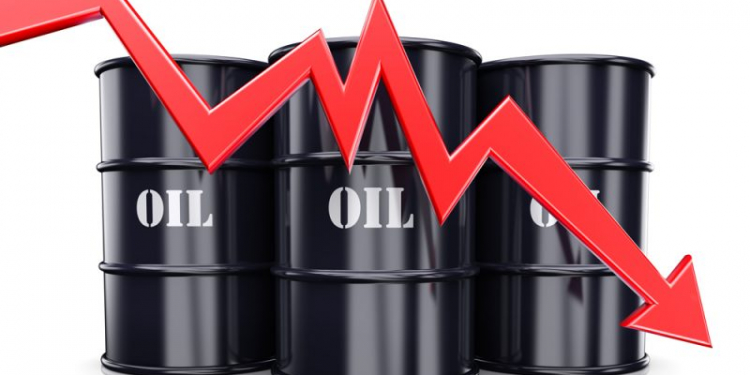The FINANCIAL – Oil prices are plunging again. Opec members wanted to bring next week’s Vienna meeting forward to late February, but Russia would not agree. The plunge in oil prices has clobbered energy stocks, which entered a bear market late last month.
Oil prices fell for a sixth straight session on Friday and were on track for about a 12% weekly fall, the biggest in more than four years, as the spread of the coronavirus outside China raised fears of slowing global demand, CNBC reported.
The oil market is hoping for steeper supply cuts by the Organization of the Petroleum Exporting Countries (OPEC) and its allies including Russia, who have said they will take a responsible approach in the wake of the virus outbreak. The producer group known as OPEC+, which is currently reducing output by roughly 1.2 million barrels per day to support prices, is set to meet in Vienna on March 5-6. “We now believe the group needs to make much steeper cuts than the 600,000 barrels per day (bpd) recommendation from their technical committee to support prices,” Jefferies analyst Jason Gammel said. “At least a 1 million bpd cut for the second quarter strikes us as necessary to merely moderate inventory builds, and we confess to underestimating demand destruction over the last several weeks,” Reuters wrote.
Opec members including Saudi Arabia wanted to bring next week’s Vienna meeting forward to late February, but Russia would not agree. Russian companies are less keen on cutting output but have gone along with the production deal since 2016 as it has been supported by President Vladimir Putin, who sees an oil-based alliance with Saudi Arabia as a way of increasing his country’s clout in the Middle East. Earlier this month a technical meeting of the top Opec and non-Opec members of the alliance recommended reducing production by an additional 600,000 b/d to help balance the market, but that was before the coronavirus had spread far beyond China’s borders. Oil traders fear demand for fuel will be severely curtailed if western governments decide to impose further lockdowns on towns and cities affected by outbreaks. China’s consumption slumped by around a quarter earlier this month at the peak of the country’s quarantines and travel restrictions, Financial Times reported.
The plunge in oil prices has clobbered energy stocks, which entered a bear market late last month. The ETF Energy Select Sector SPDR Fund (XLE), which tracks the sector, lost a stunning 11% during the first three days of this week and nearly 20% so far in 2020. Unlike recent oil bear markets caused by excess supply, this one is all about weakening demand. The shutdown of large parts of China’s economy, combined with the spread of the coronavirus to South Korea and Italy, has caused a sharp decline in flight activity and vehicle traffic. That means there is less oil needed for jet fuel and motor gasoline, according to CNN.
Prices briefly turned positive after the US government reported a drop in petrol inventories last week. Crude stocks grew by 452,000 barrels to 443.3 million barrels, the Energy Information Administration said, which was less than the 2-million-barrel rise analysts had expected. “It’s still all about the virus here,” said Bob Yawger, director of energy futures at Mizuho in New York. “It’s going to be hard for risk assets to gather momentum,” Business Times.
“Yet there is no guarantee that buyers will emerge out of the woodwork even if OPEC+ further tightens the oil spigots,” said Stephen Brennock of oil broker PVM.b Analysts said prices were also under pressure from the recently stronger U.S. dollar, which generally follows the opposite direction to oil prices. The International Energy Agency’s (IEA) outlook on global oil demand growth has fallen to its lowest level in a decade, IEA Executive Director Fatih Birol said on Tuesday, Gulf News.































Discussion about this post